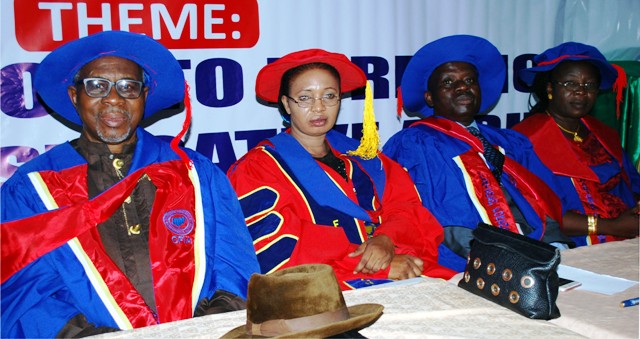Business
Nigeria Launches Economic Diplomacy Policy

Nigeria has launched Economic Diplomacy Initiative (NEDI), insisting on commitment to ensuring adequate consultation, especially with private sector, in taking vital economic decisions.
Vice President Yemi Osinbajo, who launched the NEDI, an initiative of the Foreign Affairs Ministry, said the country was committed to all Pan African and other deal that had made Nigeria to stand out as a country, with a view to integrate Africa.
“We are also committed to ensuring adequate consultation is made, especially with the private sector, before we make further commitment to some of the international treaties that are important to us.
He said Nigeria was also committed to strengthening economic ties at the official level on issues like technical cooperation, air services, double taxation, investment promotion and protection and citizens’ rights among others.
He noted that the trade and investment ties between countries were driven mainly by their private sector actors.
In the case of Nigeria, he said that the private sector was particularly important because it accounted for well over 90 per cent of our GDP.
“We are fully aware that building a competitive and vibrant national economy of our dream relies on enabling the innovation and dynamism of our private sector operators to flourish.
“Given that private sector actors and indeed talented individuals that would drive trade and investment are numerous, it follows that they may not have access or the means to obtain the information they need about the opportunities that abound especially abroad.
“So the vision of the minister to use the NEDI to bridge the vital gap is a welcome development indeed,” he said
Foreign Affairs Minister, Geoffrey Onyeama, said NEDI was a platform and mechanism for matching and connecting businesses.
According to him, NEDI seeks to surmount all business huddles and barriers by leveraging on the ministry’s presence in 100 countries to match Nigerian and foreign businesses.
“This we do through an Internet portal where any Nigerian business after satisfying credibility check can upload their data onto a website.
“And with the help of dedicated staff, the information would be available to Nigerian staff in missions in the 100 countries,” he said
According to him, in addition to NEDI, the ministry also created a window for diaspora brain gain, adding that there are millions of Nigerians, who would want to come home if they can find jobs commensurate to their skills.
“And, conversely we know that there are Nigerian institutions and businesses that are looking for skills not available in the country.
“We have therefore added a window where Nigerians in diaspora can upload their profiles and the ministry will help to match them to needs of businesses and institutions in Nigeria.
“What NEDI needs is a simple credibility and secured environment to grow the Nigerian economy,” he said
He said that the ministry would soon launch an internet base mechanism for validating document with payment online to check corrupt practices.
Business
Fidelity Bank To Empower Women With Sustainable Entrepreneurship Skills, HAP2.0
Business
President Tinubu Approves Extension Ban On Raw Shea Nut Export
Business
Crisis Response: EU-project Delivers New Vet. Clinic To Katsina Govt.
-

 News2 days ago
News2 days agoAmend Constitution To Accommodate State Police, Tinubu Tells Senators
-

 Politics2 days ago
Politics2 days agoSenate Urges Tinubu To Sack CAC Boss
-

 News2 days ago
News2 days agoDisu Takes Over As New IGP …Declares Total War On Corruption, Impunity
-
Business3 days ago
President Tinubu Extends Raw Shea Nuts Export Ban To 2027
-
Business3 days ago
Crisis Response: EU-project Delivers New Vet. Clinic To Katsina Govt.
-
Business3 days ago
President Tinubu Approves Extension Ban On Raw Shea Nut Export
-
Sports3 days ago
NDG: Rivers Coach Appeal To NDDC In Talent Discovery
-
Rivers2 days ago
Etche Clan Urges Govt On Chieftaincy Recognition

